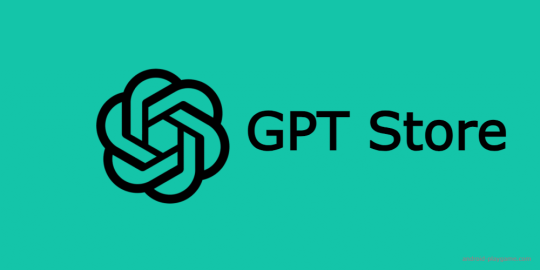
OpenAI has made its GPT Store official, a marketplace for customized chatbot applications powered by its advanced AI models, such as GPT-4 and DALL-E 3. This announcement follows a hint provided to developers earlier that such a move was forthcoming.
This new marketplace, named the GPT Store, is conveniently accessed through a dedicated tab within the ChatGPT interface on the web. Within this space, users can explore various GPT applications crafted by both OpenAI’s partners and the expansive developer community. The store sorts these applications into easily navigable categories: lifestyle, writing, research, programming, and education. There's even a community leaderboard showcasing the most popular and trending offerings.
The entry to the GPT Store, however, is reserved for subscribed members of OpenAI’s premium ChatGPT plans — namely ChatGPT Plus, ChatGPT Enterprise, and the newly introduced ChatGPT Team.
Several notable GPTs are available at the outset. These include a hiking trail recommender developed by AllTrails, a programming mentor by Khan Academy, and a content creation assistant from Canva, all ready for use without cost at the moment.
The process for creating GPTs has been designed to be developer-friendly, eliminating the need for coding skills. Developers can describe the desired features they wish their GPT to possess in simple language, and OpenAI’s GPT Builder tool will craft an AI chatbot to fulfill those roles. For instance, a GPT could be fine-tuned using a collection of cookbooks, thereby enabling it to field ingredient-related queries for specific dishes, or it could be custom-tailored to a company’s unique codebases to assist developers in maintaining coding standards.
Developers keen on featuring their GPTs in the store are required to authenticate their profiles and pass their GPTs through OpenAI’s fresh review framework, which includes both automated and human evaluation processes, to ensure adherence to company usage policies. Moreover, there’s the option for users to report any GPTs that may be in violation.
Questions loom over the nature of human involvement in OpenAI's review process, including the working conditions and support provided to the reviewers. OpenAI was queried regarding the compensation and mental health resources for its moderators, yet the company has not commented on the issue thus far. An update on this matter will be forthcoming should OpenAI provide a response.
While developers won't have the capability to monetize their GPTs at launch, there's a plan on the horizon set for sometime in Q1. This "GPT builder revenue program" would enable U.S. developers to earn based on how much users engage with their GPTs, with further payment details to be outlined later.
The initial announcement for the GPT Store came during OpenAI’s inaugural DevDay conference last year but faced delays, most likely due to significant alterations in the company's leadership and structure around that period.
The introduction of GPTs opens the doors wider for generative AI in app development, particularly for those utilizing OpenAI's suite of models. This shift has the potential to disrupt the consultancy market, which has traditionally thrived on creating similar AI solutions. The full impact of this development remains to be seen as the industry evolves.